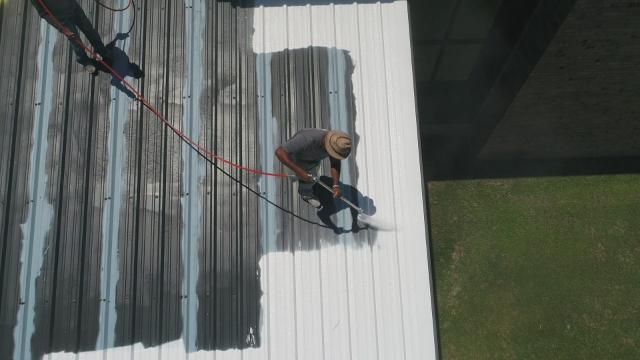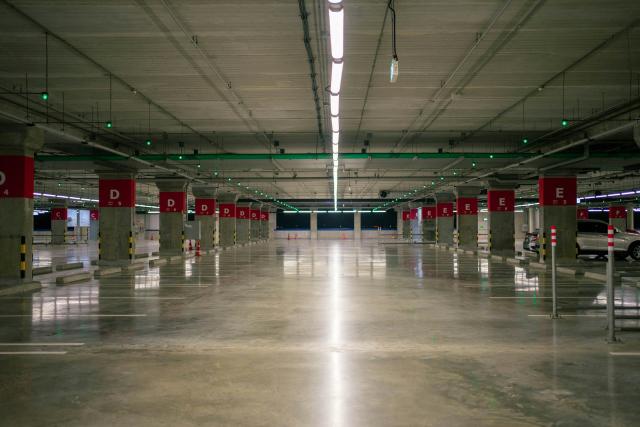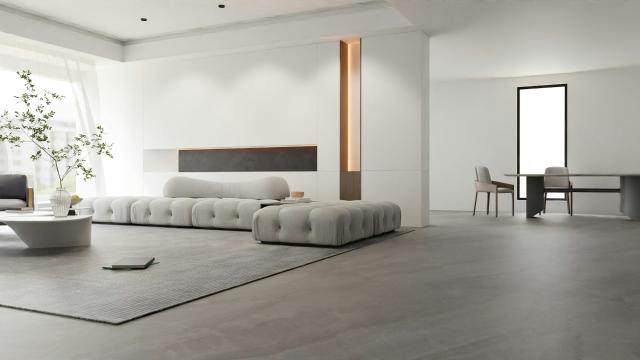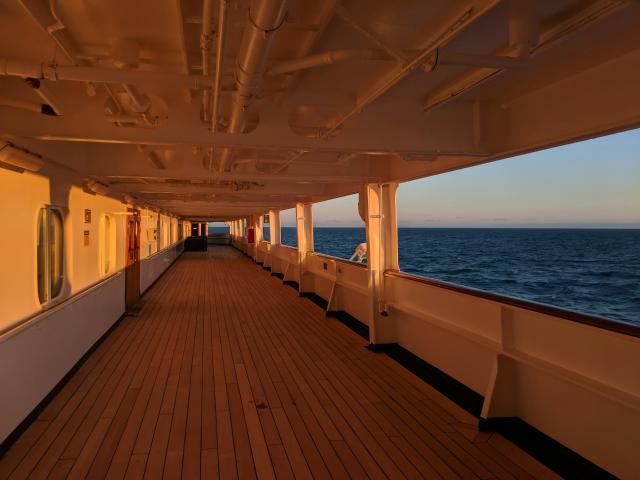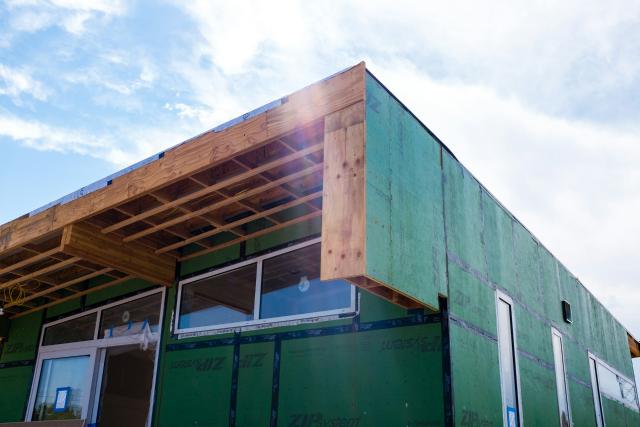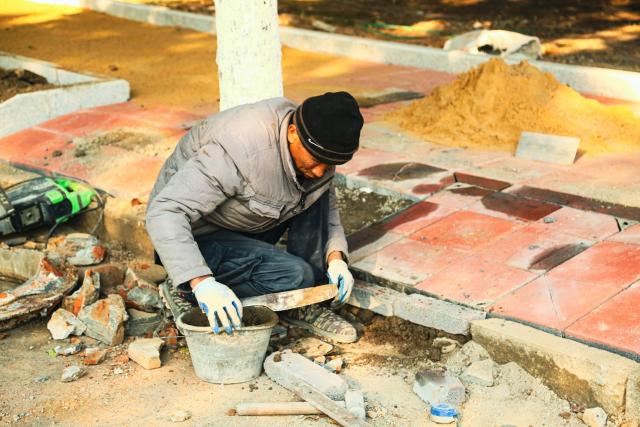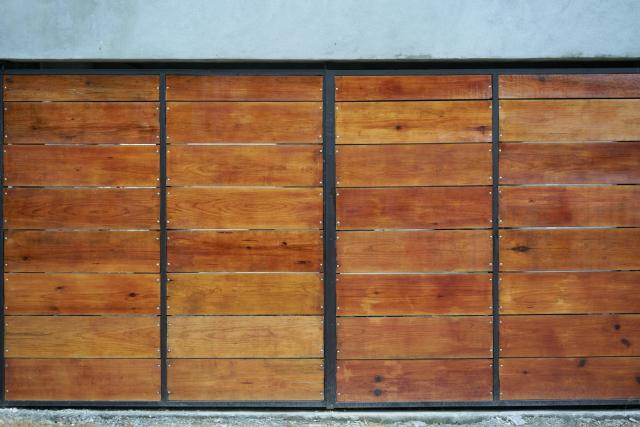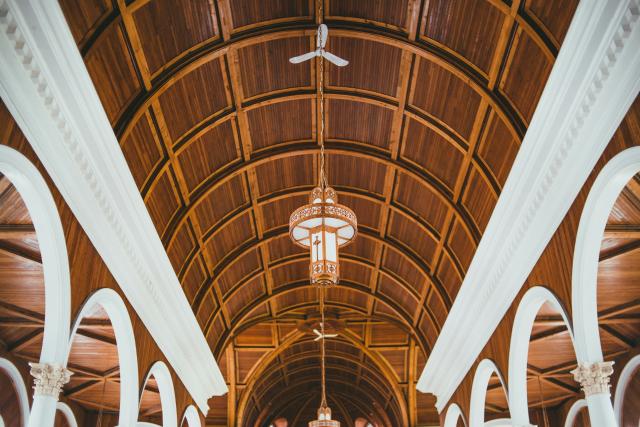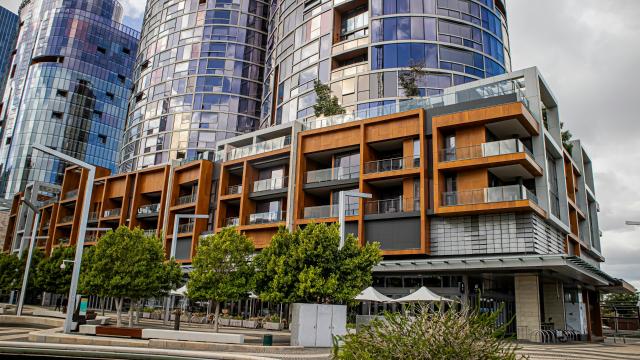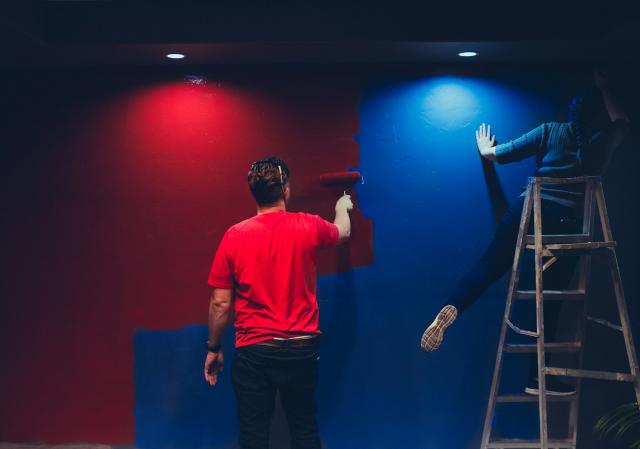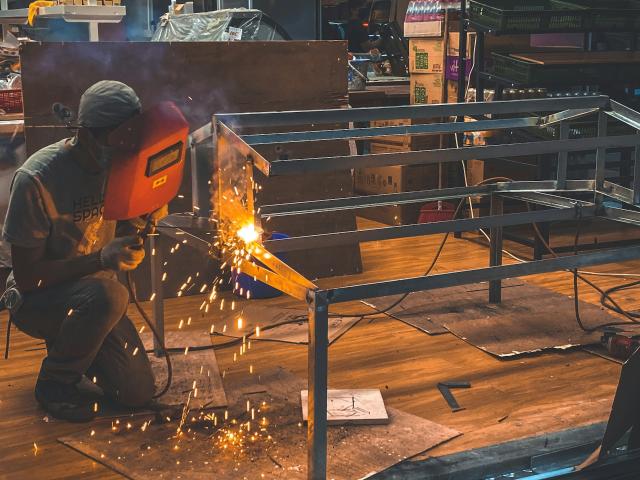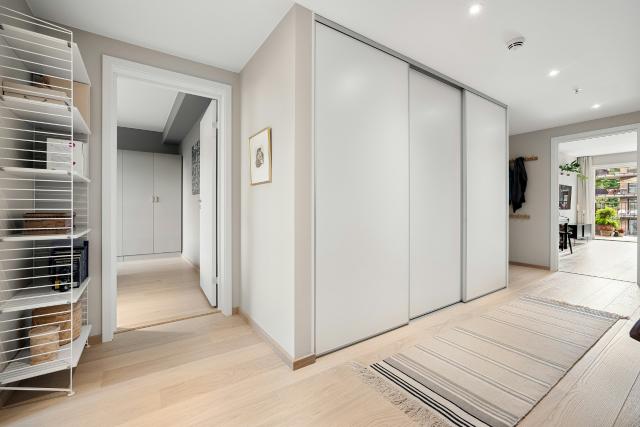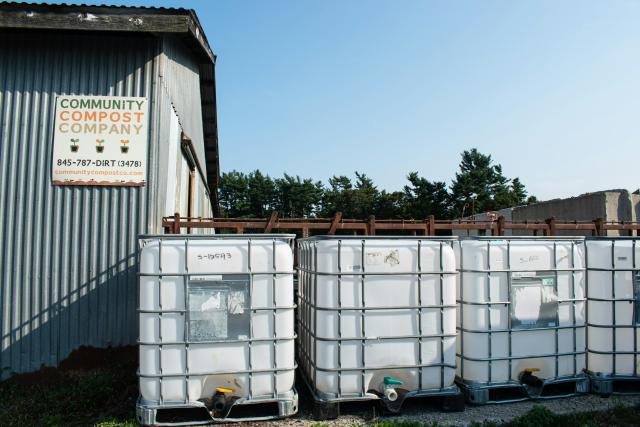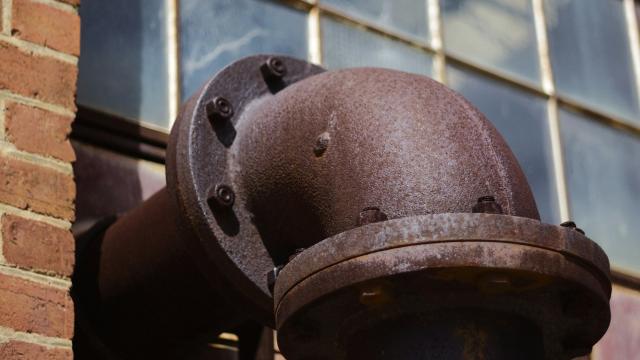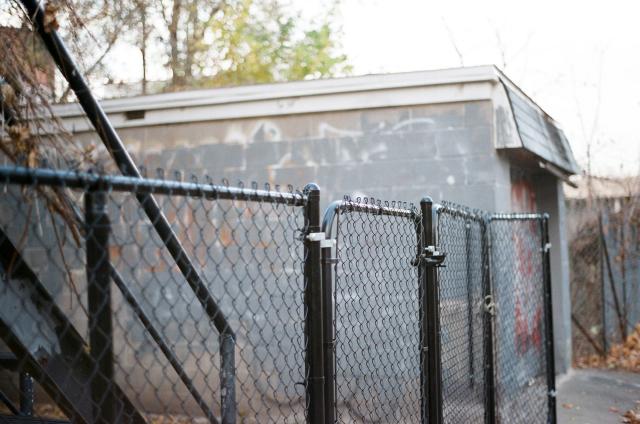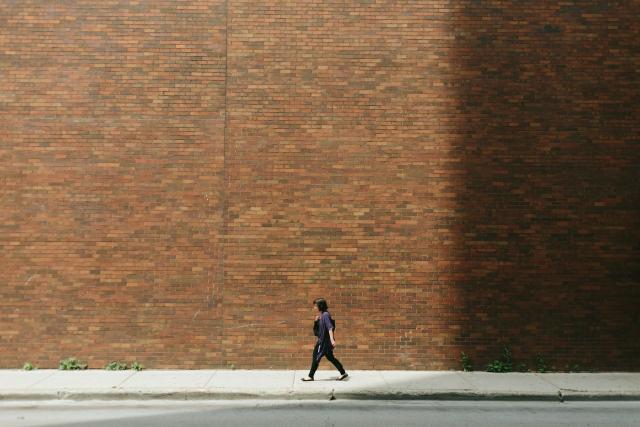Popular Ideas and Designs
Roof coating in industrial construction plays a very important role in terms of ensuring structural integrity, especially when considering harsh weather conditions in Malaysia.
Recently, a major heat reflective roof coating project for metal roof and gutter system in Senai was accomplished. The project highlights the advantages of this specially formulated roof Coating developed in Germany and examines how its impact enhances building efficiency.
Recently, a major heat reflective roof coating project for metal roof and gutter system in Senai was accomplished. The project highlights the advantages of this specially formulated roof Coating developed in Germany and examines how its impact enhances building efficiency.
Is your roof leaking during heavy rain? Are your walls suffering from condensation and mold growth? Do you wish for a cooler, more energy-efficient home or building? If so, waterproof and climate coatings could be the perfect solution for you. Discover how our cutting-edge cool roof coatings can enhance your roof's durability, reduce energy costs, and boost indoor comfort.
Unleash the Power of Waterproof Coating
Leaking roofs can cause significant damage to your property and belongings. Waterproof coatings act as a robust shield, preventing water from seeping through cracks and vulnerable areas. TL Terang Sdn Bhd, a top roof coating expert in Malaysia, provides premium waterproofing solutions ideal for roofs, balconies, basements, and more. Their experienced team will assess your needs and recommend the best coating materials, ensuring long-lasting protection against water damage.In the bustling heart of Kuala Lumpur or the thriving commercial hubs of Penang and Johor Bahru, the true test of a development’s functionality often begins not at its grand lobby, but in the dimmer, pragmatic world below or beside it: the car park. This space, frequently an afterthought in the public imagination, is in fact a complex feat of civil engineering, user experience design, and long-term asset management. It is the first and last interaction thousands have with a shopping mall, office tower, or residential condo daily. The quality of this experience—marked by safety, efficiency, and durability—is a direct reflection of the expertise behind its creation. This is the domain of the specialised car park contractor in Malaysia. Far more than a civil engineering firm, this contractor is a master of traffic flow, a guardian of structural longevity, and a technological integrator who understands that a well-built car park is not a cost centre, but a critical revenue-generating asset and a powerful contributor to a development’s overall reputation.
The journey of building a modern car park in Malaysia begins with a fundamental shift in perspective. No longer just a necessary slab of concrete to house vehicles, it is now conceived as a multi-layered system with competing demands. The contractor must balance the relentless structural load of hundreds of tonnes of vehicles with the need for long, clear spans to allow for flexible parking layouts. They must design for the brutal chemical assault from oil drips, tyre rubber, and road salts, all under the constant stress of Malaysia’s humid, tropical climate which accelerates material degradation. Simultaneously, they must engineer for human psychology—creating clear sightlines, intuitive wayfinding, and a sense of security that makes users feel safe, not anxious. A proficient contractor approaches the project holistically, seeing it as an integrated puzzle where civil, mechanical, electrical, and architectural disciplines must interlock perfectly from the very first blueprint.
The structural design and construction phase is where the contractor’s core engineering prowess is paramount. The choice of system—whether a conventional reinforced concrete flat slab, a more efficient post-tensioned slab that allows for thinner decks and longer spans, or a precast concrete system for faster construction—is a critical early decision. Each has implications for cost, construction time, and final column spacing, which directly impacts the number of parking bays achievable. The contractor must execute this with millimetric precision. The slab’s camber and gradient, for instance, are not arbitrary. They must be calculated to provide positive drainage towards designated outlets, preventing the dangerous and unsightly pooling of water during heavy rains, a non-negotiable feature in the monsoon climate. The durability of the concrete itself is a science, often involving specially formulated mixes with additives to reduce permeability and increase resistance to chemical attack, ensuring the structure withstands decades of daily wear.
The journey of building a modern car park in Malaysia begins with a fundamental shift in perspective. No longer just a necessary slab of concrete to house vehicles, it is now conceived as a multi-layered system with competing demands. The contractor must balance the relentless structural load of hundreds of tonnes of vehicles with the need for long, clear spans to allow for flexible parking layouts. They must design for the brutal chemical assault from oil drips, tyre rubber, and road salts, all under the constant stress of Malaysia’s humid, tropical climate which accelerates material degradation. Simultaneously, they must engineer for human psychology—creating clear sightlines, intuitive wayfinding, and a sense of security that makes users feel safe, not anxious. A proficient contractor approaches the project holistically, seeing it as an integrated puzzle where civil, mechanical, electrical, and architectural disciplines must interlock perfectly from the very first blueprint.
The structural design and construction phase is where the contractor’s core engineering prowess is paramount. The choice of system—whether a conventional reinforced concrete flat slab, a more efficient post-tensioned slab that allows for thinner decks and longer spans, or a precast concrete system for faster construction—is a critical early decision. Each has implications for cost, construction time, and final column spacing, which directly impacts the number of parking bays achievable. The contractor must execute this with millimetric precision. The slab’s camber and gradient, for instance, are not arbitrary. They must be calculated to provide positive drainage towards designated outlets, preventing the dangerous and unsightly pooling of water during heavy rains, a non-negotiable feature in the monsoon climate. The durability of the concrete itself is a science, often involving specially formulated mixes with additives to reduce permeability and increase resistance to chemical attack, ensuring the structure withstands decades of daily wear.
Material
Advertisement Panel Supplier in Malaysia: The Architects of Brand Visibility and Public Engagement
In the dynamic visual symphony of a Malaysian cityscape, a unique language is spoken. It is not conveyed through words or music, but through colour, light, and scale. It is the language of brands communicating with the moving public, from the towering digital spectacles above Kuala Lumpur's highways to the elegant backlit panels in a shopping mall atrium. These are the canvases of modern commerce, the physical touchpoints where brand stories become public experiences. At the core of creating these impactful touchpoints stands a specialized and pivotal player: the advertisement panel supplier in Malaysia. This entity is far more than a simple fabricator of signs; it is an integrated solutions provider, a technical consultant, and a strategic partner in transforming marketing concepts into durable, captivating, and compliant physical installations that command attention in the public realm.
The journey of an advertisement panel begins with understanding its profound and varied roles within the Malaysian context. In a nation characterized by dense urban centres, bustling highway networks, and a vibrant retail culture, outdoor advertising serves as a dominant channel for mass communication. A panel is not merely a placeholder for a logo; it is a brand's ambassador in a specific location. It must perform multiple functions simultaneously: achieving instant visual cut-through in a cluttered environment, conveying a clear message to a fast-moving audience, reinforcing brand identity, and ultimately, influencing perception and driving action. Whether it is a massive billboard guiding highway traffic, a digital screen updating commuters at an LRT station, or a sleek point-of-purchase display in a boutique, each panel type serves a distinct strategic purpose. A sophisticated supplier approaches every project with this strategic understanding, recognizing that they are not just selling a product, but enabling a critical link in the marketing chain.
The modern advertisement panel supplier operates across several key categories, each demanding specialized expertise. The classic static billboard remains a cornerstone, but its execution has evolved dramatically. Today's supplier deals in engineering-grade materials designed to withstand Malaysia's tropical climate. This includes UV-resistant vinyl prints that won't fade under the intense sun, rigid aluminium composite panels (ACP) that provide a smooth, durable substrate, and robust steel frameworks engineered to resist monsoon winds. For premium locations, suppliers offer advanced printed fabrics tensioned over frames, creating a sleek, frameless visual. Beyond the traditional, the realm of illuminated advertising is where technology truly shines. This encompasses backlit lightboxes, using energy-efficient LED systems for uniform, vibrant illumination in airport lounges or mall directories. It extends to the pinnacle of outdoor advertising: large-format digital LED billboards. Here, the supplier's role expands to include sourcing high-brightness displays capable of daytime visibility, providing the media player hardware and content management software, and often offering ongoing technical support and maintenance packages to ensure 24/7 operational reliability.
The journey of an advertisement panel begins with understanding its profound and varied roles within the Malaysian context. In a nation characterized by dense urban centres, bustling highway networks, and a vibrant retail culture, outdoor advertising serves as a dominant channel for mass communication. A panel is not merely a placeholder for a logo; it is a brand's ambassador in a specific location. It must perform multiple functions simultaneously: achieving instant visual cut-through in a cluttered environment, conveying a clear message to a fast-moving audience, reinforcing brand identity, and ultimately, influencing perception and driving action. Whether it is a massive billboard guiding highway traffic, a digital screen updating commuters at an LRT station, or a sleek point-of-purchase display in a boutique, each panel type serves a distinct strategic purpose. A sophisticated supplier approaches every project with this strategic understanding, recognizing that they are not just selling a product, but enabling a critical link in the marketing chain.
The modern advertisement panel supplier operates across several key categories, each demanding specialized expertise. The classic static billboard remains a cornerstone, but its execution has evolved dramatically. Today's supplier deals in engineering-grade materials designed to withstand Malaysia's tropical climate. This includes UV-resistant vinyl prints that won't fade under the intense sun, rigid aluminium composite panels (ACP) that provide a smooth, durable substrate, and robust steel frameworks engineered to resist monsoon winds. For premium locations, suppliers offer advanced printed fabrics tensioned over frames, creating a sleek, frameless visual. Beyond the traditional, the realm of illuminated advertising is where technology truly shines. This encompasses backlit lightboxes, using energy-efficient LED systems for uniform, vibrant illumination in airport lounges or mall directories. It extends to the pinnacle of outdoor advertising: large-format digital LED billboards. Here, the supplier's role expands to include sourcing high-brightness displays capable of daytime visibility, providing the media player hardware and content management software, and often offering ongoing technical support and maintenance packages to ensure 24/7 operational reliability.
The search for the perfect floor in a Malaysian home is a quest for harmony in a land of extremes. It must balance the desire for beauty with an uncompromising demand for practicality, standing firm against monsoon-tracked moisture, the relentless pace of family life, and the ever-present tropical humidity. For decades, this meant choosing between the cold resilience of tile and the warm beauty of timber, each with its own set of compromises. Then came the quiet revolution of modern vinyl flooring. This is no longer the thin, plastic sheet of memory. Today's luxury vinyl tile (LVT) and plank (LVP) are technological marvels, offering stunning visual fidelity, incredible durability, and a superpower crucial to the local context: 100% waterproof integrity. Yet, the full promise of this remarkable material is only unlocked in the hands of a specialist vinyl flooring contractor. This professional is more than a layer of planks; they are a surface scientist, a precision installer, and a problem-solver who understands how to create a flawless, enduring foundation that looks like wood, stone, or concrete but performs like a fortress.
The journey with a vinyl flooring contractor begins with understanding the material's evolution and its near-perfect suitability for Malaysia. Modern LVT/LVP is a complex, multi-layered product engineered for performance. The core, often a rigid stone-plastic composite (SPC) or wood-plastic composite (WPC), provides dimensional stability that is immune to the expansion and contraction caused by humidity—the nemesis of traditional wood. This rigidity gives the floor a solid, substantial feel underfoot, banishing the hollow echo of older vinyl. Above this lies the high-definition photographic layer, a printed film so advanced it can replicate the grain of oak, the veining of Carrara marble, or the texture of weathered concrete with astonishing realism. This image is then protected by a clear wear layer, a transparent shield of urethane that is rated for commercial or residential traffic and resists scratches, stains, and fading from UV light. This combination of waterproof core, photorealistic design, and armoured surface makes vinyl not just an alternative, but often the optimal choice for Malaysian kitchens, bathrooms, living areas, and even commercial spaces where moisture, spills, and heavy use are daily realities.
The contractor's first and most critical role is that of a guide and consultant, navigating the vast and sometimes overwhelming array of product choices. The market offers a spectrum of quality, and a professional's insight is invaluable. They explain the difference between the flexibility of sheet vinyl, the modularity of vinyl tiles, and the popular plank format that mimics hardwood installation. They delve into technical specifications, clarifying the importance of wear layer thickness (measured in mils), which directly correlates to durability. For a busy family home, a 12-20 mil wear layer is standard; for a retail shop, 28 mil or higher may be required. They also discuss the subtleties of the locking system—the click mechanism that holds planks together. A robust, precise locking system is the key to a tight, stable floor that won't creak or separate. A contractor will have samples from trusted manufacturers, allowing clients to feel the embossed texture that matches the visual print (a feature called embossed-in-register), see the colour variations in different lights, and understand the performance guarantees. This consultative process ensures the selection is based on informed criteria, not just price or a fleeting aesthetic impression.
The journey with a vinyl flooring contractor begins with understanding the material's evolution and its near-perfect suitability for Malaysia. Modern LVT/LVP is a complex, multi-layered product engineered for performance. The core, often a rigid stone-plastic composite (SPC) or wood-plastic composite (WPC), provides dimensional stability that is immune to the expansion and contraction caused by humidity—the nemesis of traditional wood. This rigidity gives the floor a solid, substantial feel underfoot, banishing the hollow echo of older vinyl. Above this lies the high-definition photographic layer, a printed film so advanced it can replicate the grain of oak, the veining of Carrara marble, or the texture of weathered concrete with astonishing realism. This image is then protected by a clear wear layer, a transparent shield of urethane that is rated for commercial or residential traffic and resists scratches, stains, and fading from UV light. This combination of waterproof core, photorealistic design, and armoured surface makes vinyl not just an alternative, but often the optimal choice for Malaysian kitchens, bathrooms, living areas, and even commercial spaces where moisture, spills, and heavy use are daily realities.
The contractor's first and most critical role is that of a guide and consultant, navigating the vast and sometimes overwhelming array of product choices. The market offers a spectrum of quality, and a professional's insight is invaluable. They explain the difference between the flexibility of sheet vinyl, the modularity of vinyl tiles, and the popular plank format that mimics hardwood installation. They delve into technical specifications, clarifying the importance of wear layer thickness (measured in mils), which directly correlates to durability. For a busy family home, a 12-20 mil wear layer is standard; for a retail shop, 28 mil or higher may be required. They also discuss the subtleties of the locking system—the click mechanism that holds planks together. A robust, precise locking system is the key to a tight, stable floor that won't creak or separate. A contractor will have samples from trusted manufacturers, allowing clients to feel the embossed texture that matches the visual print (a feature called embossed-in-register), see the colour variations in different lights, and understand the performance guarantees. This consultative process ensures the selection is based on informed criteria, not just price or a fleeting aesthetic impression.
There is a particular feeling of home that arrives with the first step onto a timber floor. It is a sensation of instant connection—a subtle warmth underfoot, a gentle give, a quiet, solid resonance that feels utterly different from the cool, hard echo of tile or stone. In Malaysia, where the climate often drives design towards cold, moisture-resistant surfaces, the choice of timber flooring is a profound declaration of comfort and character. It speaks to a desire for natural beauty, organic texture, and an enduring sense of sanctuary. However, installing wood in a land defined by humidity and heat is a venture that demands more than just carpentry skills. It requires the deep, nuanced expertise of a specialist timber flooring contractor. This professional is not merely a fitter of planks; they are a guardian of wood, a master of microclimates, and an artisan who understands how to make a living, breathing material thrive in a demanding environment.
The journey of a timber floor in a Malaysian home begins with a fundamental understanding of wood as a hygroscopic material. Wood breathes. It absorbs and releases moisture from the surrounding air, expanding when humidity is high and contracting when it is low. This is not a flaw; it is its nature. The true expertise of a contractor lies in working with this nature, not against it. The most critical phase of any project happens long before installation: wood acclimatisation. A professional contractor will deliver the timber to the site days or even weeks in advance. They will unwrap the bundles, stack them with spacers to allow air circulation, and let the wood settle into the precise temperature and humidity conditions of the room where it will live. Using a moisture meter, they will monitor the wood’s moisture content until it reaches equilibrium with the subfloor. Rushing this step is the cardinal sin of timber flooring; installing wood that is too dry or too damp for its environment guarantees problems later—gaps, cupping, or buckling as the wood seeks its balance. This patient, scientific approach is the non-negotiable foundation of a successful, stable floor.
Equally crucial is the preparation of the subfloor, the hidden stage upon which the drama of the timber floor will play out. A contractor treats this stage with the gravity of a surgeon preparing an operating theatre. The subfloor, whether concrete or existing timber, must be bone-dry, perfectly level, and impeccably clean. In Malaysia, moisture testing of concrete slabs is paramount. Contractors use plastic sheet tests or electronic moisture meters to ensure the slab’s moisture emission is within acceptable limits for wood installation. Any excess moisture must be addressed with specialised sealants or moisture barriers before proceeding. The subfloor is then levelled using self-levelling compounds to eliminate any dips or rises greater than a few millimetres over a two-metre span. A floor laid over an uneven subfloor will telegraph every imperfection, creating hollow spots, squeaks, and undue stress on the planks. This meticulous, unseen work is what separates a professional installation from one destined for callbacks and complaints.
The journey of a timber floor in a Malaysian home begins with a fundamental understanding of wood as a hygroscopic material. Wood breathes. It absorbs and releases moisture from the surrounding air, expanding when humidity is high and contracting when it is low. This is not a flaw; it is its nature. The true expertise of a contractor lies in working with this nature, not against it. The most critical phase of any project happens long before installation: wood acclimatisation. A professional contractor will deliver the timber to the site days or even weeks in advance. They will unwrap the bundles, stack them with spacers to allow air circulation, and let the wood settle into the precise temperature and humidity conditions of the room where it will live. Using a moisture meter, they will monitor the wood’s moisture content until it reaches equilibrium with the subfloor. Rushing this step is the cardinal sin of timber flooring; installing wood that is too dry or too damp for its environment guarantees problems later—gaps, cupping, or buckling as the wood seeks its balance. This patient, scientific approach is the non-negotiable foundation of a successful, stable floor.
Equally crucial is the preparation of the subfloor, the hidden stage upon which the drama of the timber floor will play out. A contractor treats this stage with the gravity of a surgeon preparing an operating theatre. The subfloor, whether concrete or existing timber, must be bone-dry, perfectly level, and impeccably clean. In Malaysia, moisture testing of concrete slabs is paramount. Contractors use plastic sheet tests or electronic moisture meters to ensure the slab’s moisture emission is within acceptable limits for wood installation. Any excess moisture must be addressed with specialised sealants or moisture barriers before proceeding. The subfloor is then levelled using self-levelling compounds to eliminate any dips or rises greater than a few millimetres over a two-metre span. A floor laid over an uneven subfloor will telegraph every imperfection, creating hollow spots, squeaks, and undue stress on the planks. This meticulous, unseen work is what separates a professional installation from one destined for callbacks and complaints.
The iconic image of construction in Malaysia—the cacophony of jackhammers, the clouds of dust, the symphony of shouted instructions over roaring machinery—is being quietly, but irrevocably, redesigned. A new breed of contractor is emerging, one who understands that in an era of complex projects, skilled labour shortages, and urgent sustainability goals, the old ways are no longer sufficient. These are the contractors with innovation embedded in their operational DNA. They are not merely adopters of new tools; they are holistic re-imaginers of the building process itself. They leverage technology not as a gimmick, but as a core strategy to enhance precision, safety, and collaboration, while fundamentally rethinking their approach to materials, waste, and environmental impact. To be an innovative contractor in Malaysia today is to be a master of integration, blending the time-tested wisdom of construction with the transformative power of digital and industrial innovation to build a smarter, greener, and more resilient future.
At the heart of this transformation is the digital thread that now runs through the entire project lifecycle, beginning with Building Information Modeling (BIM). For the innovative contractor, BIM is far more than a sophisticated 3D drawing tool. It is a dynamic, data-rich collaboration platform. They use it to create a digital twin of the project before the first foundation is poured. This allows for advanced clash detection, where potential conflicts between structural beams, ductwork, and plumbing are identified and resolved virtually, preventing costly and time-consuming rework on-site. BIM models enable precise quantity take-offs, leading to accurate material ordering that minimises waste. They are used to plan construction sequences with surgical precision, simulating logistics and crane movements. On-site, foremen and workers access these models on tablets, viewing up-to-date plans and specifications, which reduces errors and improves communication. This digital backbone transforms the construction process from a linear, often disjointed series of tasks into a synchronised, data-driven orchestra, where every stakeholder works from a single source of truth.
This digital planning seamlessly transitions into the physical realm through the strategic adoption of Industrialised Building Systems (IBS). Innovation here is about shifting value from the chaotic construction site to the controlled factory environment. An innovative contractor partners with or operates prefabrication facilities where building components—wall panels, bathroom pods, mechanical duct assemblies, even entire room modules—are manufactured with machine precision. These components are then transported to site for rapid assembly, like a sophisticated kit of parts. The benefits are profound. Factory conditions guarantee superior quality control, free from weather disruptions. On-site construction time can be slashed by 30-50%, reducing financing costs and enabling faster project delivery. There is a dramatic reduction in construction waste, noise, and dust pollution at the site, a significant consideration in dense urban areas. It also shifts the workforce demand towards skilled technicians in factories, offering more stable, safer, and technologically engaging careers, which is crucial for attracting a new generation to the industry. For the innovative contractor, IBS is not just a construction method; it is a philosophy of manufacturing for quality, efficiency, and sustainability.
At the heart of this transformation is the digital thread that now runs through the entire project lifecycle, beginning with Building Information Modeling (BIM). For the innovative contractor, BIM is far more than a sophisticated 3D drawing tool. It is a dynamic, data-rich collaboration platform. They use it to create a digital twin of the project before the first foundation is poured. This allows for advanced clash detection, where potential conflicts between structural beams, ductwork, and plumbing are identified and resolved virtually, preventing costly and time-consuming rework on-site. BIM models enable precise quantity take-offs, leading to accurate material ordering that minimises waste. They are used to plan construction sequences with surgical precision, simulating logistics and crane movements. On-site, foremen and workers access these models on tablets, viewing up-to-date plans and specifications, which reduces errors and improves communication. This digital backbone transforms the construction process from a linear, often disjointed series of tasks into a synchronised, data-driven orchestra, where every stakeholder works from a single source of truth.
This digital planning seamlessly transitions into the physical realm through the strategic adoption of Industrialised Building Systems (IBS). Innovation here is about shifting value from the chaotic construction site to the controlled factory environment. An innovative contractor partners with or operates prefabrication facilities where building components—wall panels, bathroom pods, mechanical duct assemblies, even entire room modules—are manufactured with machine precision. These components are then transported to site for rapid assembly, like a sophisticated kit of parts. The benefits are profound. Factory conditions guarantee superior quality control, free from weather disruptions. On-site construction time can be slashed by 30-50%, reducing financing costs and enabling faster project delivery. There is a dramatic reduction in construction waste, noise, and dust pollution at the site, a significant consideration in dense urban areas. It also shifts the workforce demand towards skilled technicians in factories, offering more stable, safer, and technologically engaging careers, which is crucial for attracting a new generation to the industry. For the innovative contractor, IBS is not just a construction method; it is a philosophy of manufacturing for quality, efficiency, and sustainability.
In the quiet of a Malaysian home, a new crack in the living room floor tile is more than a cosmetic flaw; it is a silent alarm. It is a tangible signal from the very foundation of your sanctuary, a whisper of movement, stress, or settlement in the structure below. From the polished marble of a corporate lobby to the terrazzo of a heritage school, cracks disrupt not just the surface but our sense of security and order. Addressing them is a task that demands far more than a tube of filler and a hopeful spirit. This is the domain of the professional floor crack repair contractor in Malaysia. This specialist is not a handyman, but a forensic structural investigator, a master of materials science, and a craftsman whose work is measured in millimetres and decades of stability. Their expertise lies in discerning the story a crack tells, prescribing the correct cure, and executing repairs that are not just skin-deep but are engineered to last in the face of the nation's unique environmental challenges.
The appearance of a floor crack is a symptom, and the first, most critical role of the contractor is that of a diagnostician. In Malaysia's dynamic environment, cracks can have a multitude of parents. The most common culprit is the soil itself. Expansive clay soils, prevalent in many areas, swell dramatically with monsoon rains and shrink during dry periods, causing cyclical heaving and settling beneath a building's foundation. This differential movement translates directly into stress cracks in the floor slab above. In older buildings, the natural curing and shrinkage of concrete over decades can cause non-structural hairline cracks. Thermal expansion and contraction of materials under the intense tropical sun, especially in large, exposed floor areas, is another frequent cause. More seriously, cracks can signal inadequate structural design, poor initial compaction of the sub-base, or even the encroachment of tree roots. A professional contractor begins not with a repair, but with a meticulous investigation. They examine the crack's pattern: is it a single, straight line or a sprawling, spider-web map? They note its width, depth, and whether it is active (still widening) or dormant. They assess the surrounding area for other signs of distress—sticking doors, cracks in walls above—and ask about the history of the property and the crack's emergence. This diagnosis is the cornerstone of an effective, permanent repair.
Armed with a diagnosis, the contractor then selects from a sophisticated arsenal of repair methodologies, each suited to a specific type and cause of cracking. For dormant, non-structural hairline cracks in concrete slabs—often mere aesthetic concerns—they employ surface sealing techniques. This involves cleaning and slightly widening the crack to form a "V" groove, then filling it with a flexible, polymer-modified cementitious grout or a colour-matched epoxy filler. The goal here is visual restoration and preventing water ingress, which could lead to further degradation or mould growth in the subfloor. For cracks that are actively moving or are structural in nature, a far more robust approach is required. Here, the gold standard is crack injection. This is a precise, technical process where ports are drilled along the length of the crack at strategic intervals. A low-viscosity, high-strength epoxy or polyurethane resin is then injected under pressure, starting from one end and moving sequentially. The resin flows into the minutest fissures, bonding the concrete back together from the inside out. For cracks caused by water seepage, hydrophilic polyurethane foam is used; it reacts with water to expand, creating a flexible, watertight seal. This method not only repairs but often strengthens the original concrete, restoring its monolithic integrity.
The appearance of a floor crack is a symptom, and the first, most critical role of the contractor is that of a diagnostician. In Malaysia's dynamic environment, cracks can have a multitude of parents. The most common culprit is the soil itself. Expansive clay soils, prevalent in many areas, swell dramatically with monsoon rains and shrink during dry periods, causing cyclical heaving and settling beneath a building's foundation. This differential movement translates directly into stress cracks in the floor slab above. In older buildings, the natural curing and shrinkage of concrete over decades can cause non-structural hairline cracks. Thermal expansion and contraction of materials under the intense tropical sun, especially in large, exposed floor areas, is another frequent cause. More seriously, cracks can signal inadequate structural design, poor initial compaction of the sub-base, or even the encroachment of tree roots. A professional contractor begins not with a repair, but with a meticulous investigation. They examine the crack's pattern: is it a single, straight line or a sprawling, spider-web map? They note its width, depth, and whether it is active (still widening) or dormant. They assess the surrounding area for other signs of distress—sticking doors, cracks in walls above—and ask about the history of the property and the crack's emergence. This diagnosis is the cornerstone of an effective, permanent repair.
Armed with a diagnosis, the contractor then selects from a sophisticated arsenal of repair methodologies, each suited to a specific type and cause of cracking. For dormant, non-structural hairline cracks in concrete slabs—often mere aesthetic concerns—they employ surface sealing techniques. This involves cleaning and slightly widening the crack to form a "V" groove, then filling it with a flexible, polymer-modified cementitious grout or a colour-matched epoxy filler. The goal here is visual restoration and preventing water ingress, which could lead to further degradation or mould growth in the subfloor. For cracks that are actively moving or are structural in nature, a far more robust approach is required. Here, the gold standard is crack injection. This is a precise, technical process where ports are drilled along the length of the crack at strategic intervals. A low-viscosity, high-strength epoxy or polyurethane resin is then injected under pressure, starting from one end and moving sequentially. The resin flows into the minutest fissures, bonding the concrete back together from the inside out. For cracks caused by water seepage, hydrophilic polyurethane foam is used; it reacts with water to expand, creating a flexible, watertight seal. This method not only repairs but often strengthens the original concrete, restoring its monolithic integrity.
In the heart of a Malaysian café, a wall tells a story of generations. It is not a smooth, painted surface, but a layered collage of texture—the ghost of old paint, the gritty imprint of original plaster, and the raw, honest face of reclaimed brick. This is the power of the stripped wall, a design choice that has moved from the domain of edgy art galleries and boutique hotels into discerning homes and commercial spaces across the nation. However, achieving this coveted look of curated decay and authentic texture is an art form in itself, one that goes far beyond the swing of a demolition hammer. It demands a discerning eye for material, a deep understanding of architectural history, and access to specialized products. This is where the expertise of a stripped wall panel supplier in Malaysia becomes indispensable. They are not merely vendors of decorative surfaces; they are purveyors of patina, consultants in controlled deconstruction, and partners in crafting walls with soul and a profound sense of place.
The stripped wall aesthetic represents a significant philosophical shift in interior design. It is a deliberate move away from the flawless, the new, and the homogenous. Instead, it embraces the beauty of imperfection, the narrative of time, and the tactile quality of raw materials. In a rapidly modernizing nation, this aesthetic provides a powerful anchor—a tangible connection to history, craft, and materiality. It transforms a wall from a passive boundary into an active storytelling element. Whether it's the rustic warmth of exposed brick, the graphic linearity of reclaimed timber planks, or the sculptural, mottled surface of cleaned-back concrete, each stripped finish carries a unique emotional weight. It can make a space feel grounded and authentic, industrial and dynamic, or artistically raw and intellectually stimulating. This trend speaks to a desire for environments that feel genuine, layered, and inherently interesting, offering a visual and tactile richness that flat paint simply cannot achieve.
The journey to a masterfully stripped wall often begins with the original substrate itself. In heritage renovations—particularly of colonial shophouses in Penang or Malacca, or older brick buildings in Kuala Lumpur—the process is one of careful architectural archaeology. Here, a supplier’s role is to provide the tools and expertise for careful, controlled revelation. They supply specialized chemical paint strippers that can safely remove layers of modern latex paint without damaging the historic lime plaster or brick beneath. They offer gentle mechanical tools, like rotary brushes with soft bristles, for meticulous cleaning. For brick walls, they provide penetrating sealers and matte finishes that protect the masonry from Malaysia’s humidity while allowing it to “breathe,” preventing moisture trapping and salt efflorescence. This historical approach is delicate and respectful, aiming to uncover and preserve the original fabric of the building, celebrating its age and craft rather than erasing it.
The stripped wall aesthetic represents a significant philosophical shift in interior design. It is a deliberate move away from the flawless, the new, and the homogenous. Instead, it embraces the beauty of imperfection, the narrative of time, and the tactile quality of raw materials. In a rapidly modernizing nation, this aesthetic provides a powerful anchor—a tangible connection to history, craft, and materiality. It transforms a wall from a passive boundary into an active storytelling element. Whether it's the rustic warmth of exposed brick, the graphic linearity of reclaimed timber planks, or the sculptural, mottled surface of cleaned-back concrete, each stripped finish carries a unique emotional weight. It can make a space feel grounded and authentic, industrial and dynamic, or artistically raw and intellectually stimulating. This trend speaks to a desire for environments that feel genuine, layered, and inherently interesting, offering a visual and tactile richness that flat paint simply cannot achieve.
The journey to a masterfully stripped wall often begins with the original substrate itself. In heritage renovations—particularly of colonial shophouses in Penang or Malacca, or older brick buildings in Kuala Lumpur—the process is one of careful architectural archaeology. Here, a supplier’s role is to provide the tools and expertise for careful, controlled revelation. They supply specialized chemical paint strippers that can safely remove layers of modern latex paint without damaging the historic lime plaster or brick beneath. They offer gentle mechanical tools, like rotary brushes with soft bristles, for meticulous cleaning. For brick walls, they provide penetrating sealers and matte finishes that protect the masonry from Malaysia’s humidity while allowing it to “breathe,” preventing moisture trapping and salt efflorescence. This historical approach is delicate and respectful, aiming to uncover and preserve the original fabric of the building, celebrating its age and craft rather than erasing it.
In the landscape of Malaysian interior design, a fascinating and powerful aesthetic has moved from the warehouses of old Penang to the gleaming new lofts of Kuala Lumpur. It is the look of exposed structure, of honest materials, and of spatial authenticity—the industrial chic epitomized by the stripped ceiling. Once a sign of an unfinished project, the exposed ceiling has been reclaimed as a deliberate design statement, celebrating the raw bones of a building. However, achieving this look is not about simple neglect; it requires a discerning eye, meticulous preparation, and crucially, the right materials. This is where the role of the specialized stripped ceiling supplier in Malaysia becomes pivotal. They are not just vendors of panels, but purveyors of texture, consultants in urban archaeology, and partners in transforming the often-forgotten “fifth wall” into the most compelling feature of a space.
To understand the essence of a stripped ceiling, one must first appreciate its visual and psychological impact. Unlike the pristine, uniform plane of a conventional plasterboard ceiling, a stripped ceiling reveals a building’s inner life. It exposes the rhythmic geometry of beams, the orderly chaos of conduits and ductwork, and the solid mass of the concrete slab above. This transparency creates an immediate sense of volume and industrial grandeur, making even modest spaces feel loft-like and expansive. It speaks to a design philosophy that values authenticity over artifice, where the story of the building’s construction is not hidden but celebrated. In a nation rapidly modernizing, this aesthetic also offers a tangible connection to the materiality of construction—the ruggedness of concrete, the strength of steel—bringing a grounded, urban edge to residential, commercial, and hospitality interiors. It is a choice that feels both modern and timeless, rooted in a raw, unpretentious beauty.
However, achieving this look is a sophisticated endeavor, not a default condition. The concrete slab revealed when a false ceiling is removed is rarely, if ever, “design-ready.” It is often a landscape of construction imperfections: uneven pours, leftover formwork tie-holes, protruding bolts, and stains from the curing process. The first and most critical role of a stripped ceiling supplier is to provide the materials and expertise for the essential process of surface preparation and refinement. This goes beyond mere cleaning. They supply specialized skim coatings and architectural-grade patching compounds designed to fill imperfections and create a uniform surface texture without losing the authentic character of the concrete. They provide high-build, breathable primers that stabilize the surface and ensure adhesion for any subsequent treatments. For suppliers focused on a more finished industrial look, they offer micro-toppings—thin, polymer-modified cement overlays that can be troweled to a remarkably smooth finish, creating a seamless, monolithic plane that still reads as concrete. This stage transforms a rough, unfinished slab into a “designed” exposed ceiling, elevating it from a construction substrate to an architectural finish.
To understand the essence of a stripped ceiling, one must first appreciate its visual and psychological impact. Unlike the pristine, uniform plane of a conventional plasterboard ceiling, a stripped ceiling reveals a building’s inner life. It exposes the rhythmic geometry of beams, the orderly chaos of conduits and ductwork, and the solid mass of the concrete slab above. This transparency creates an immediate sense of volume and industrial grandeur, making even modest spaces feel loft-like and expansive. It speaks to a design philosophy that values authenticity over artifice, where the story of the building’s construction is not hidden but celebrated. In a nation rapidly modernizing, this aesthetic also offers a tangible connection to the materiality of construction—the ruggedness of concrete, the strength of steel—bringing a grounded, urban edge to residential, commercial, and hospitality interiors. It is a choice that feels both modern and timeless, rooted in a raw, unpretentious beauty.
However, achieving this look is a sophisticated endeavor, not a default condition. The concrete slab revealed when a false ceiling is removed is rarely, if ever, “design-ready.” It is often a landscape of construction imperfections: uneven pours, leftover formwork tie-holes, protruding bolts, and stains from the curing process. The first and most critical role of a stripped ceiling supplier is to provide the materials and expertise for the essential process of surface preparation and refinement. This goes beyond mere cleaning. They supply specialized skim coatings and architectural-grade patching compounds designed to fill imperfections and create a uniform surface texture without losing the authentic character of the concrete. They provide high-build, breathable primers that stabilize the surface and ensure adhesion for any subsequent treatments. For suppliers focused on a more finished industrial look, they offer micro-toppings—thin, polymer-modified cement overlays that can be troweled to a remarkably smooth finish, creating a seamless, monolithic plane that still reads as concrete. This stage transforms a rough, unfinished slab into a “designed” exposed ceiling, elevating it from a construction substrate to an architectural finish.
The construction site has long been the most visceral symbol of a nation's progress. In Malaysia, the rhythmic pounding of pile drivers and the silhouettes of cranes against the skyline have soundtracked decades of remarkable development. Yet, beneath the familiar dust and din, the industry is undergoing a profound and necessary transformation. The traditional models of building are being challenged, re-engineered, and infused with new priorities. Today, to highlight the construction industry in Malaysia is to tell a story not just of physical growth, but of technological adoption, environmental responsibility, and a fundamental shift in how we conceive the relationship between the built environment and the people who inhabit it. This new era is defined by a powerful convergence of innovation and imperative, shaping a future where buildings are smarter, greener, and built with greater precision and purpose than ever before.
Perhaps the most significant and welcome shift is the industry's earnest embrace of sustainability and green building principles. For years, sustainability was often viewed as a niche concern or a marketing add-on. Today, it has moved to the very core of project planning and execution. This is driven by a combination of global climate commitments, rising energy costs, and a growing demand from investors, tenants, and homeowners for healthier, more efficient spaces. The Green Building Index (GBI) and other certification systems are no longer just plaques in a lobby; they are rigorous frameworks guiding design. The focus now is on holistic performance: optimizing building orientation and using high-performance glazing to reduce solar heat gain, integrating renewable energy sources like Building-Integrated Photovoltaics (BIPV) into facades and roofs, and implementing sophisticated water management systems that harvest rainwater and recycle greywater. Beyond energy and water, the spotlight is on materials. There is a growing emphasis on sourcing sustainable timber, using recycled content in concrete and steel, and selecting low-VOC (volatile organic compound) paints and finishes to ensure superior indoor air quality. This green revolution means construction is no longer just about creating a structure, but about crafting a high-performance environmental system that minimizes its footprint across its entire lifecycle, from material extraction to eventual deconstruction.
This drive for efficiency and precision is being supercharged by the rapid adoption of Industrialised Building Systems (IBS) and cutting-edge digitalization. The image of construction as a chaotic, labour-intensive site activity is giving way to one of a streamlined, factory-like process. IBS, where building components like walls, columns, and bathroom pods are manufactured off-site in controlled environments, is gaining tremendous traction. The benefits are transformative: drastically improved quality control, a significant reduction in construction waste and on-site mess, faster project timelines as wet trades are minimized, and enhanced worker safety. Digitalization is the intelligent partner to this physical prefabrication. Building Information Modeling (BIM) has evolved from a 3D drawing tool into a rich, data-centric process. It creates a digital twin of the entire project, allowing architects, engineers, contractors, and facility managers to collaborate on a single, clash-free model. This prevents costly errors, enables precise quantity take-offs, and allows for advanced simulations of energy performance and structural behaviour. Furthermore, the use of drones for site surveying and progress monitoring, AI for project risk analysis, and Internet of Things (IoT) sensors for real-time monitoring of concrete curing or structural health is becoming commonplace. This digital thread, running from initial design through to facility management, is making construction more predictable, manageable, and efficient.
Perhaps the most significant and welcome shift is the industry's earnest embrace of sustainability and green building principles. For years, sustainability was often viewed as a niche concern or a marketing add-on. Today, it has moved to the very core of project planning and execution. This is driven by a combination of global climate commitments, rising energy costs, and a growing demand from investors, tenants, and homeowners for healthier, more efficient spaces. The Green Building Index (GBI) and other certification systems are no longer just plaques in a lobby; they are rigorous frameworks guiding design. The focus now is on holistic performance: optimizing building orientation and using high-performance glazing to reduce solar heat gain, integrating renewable energy sources like Building-Integrated Photovoltaics (BIPV) into facades and roofs, and implementing sophisticated water management systems that harvest rainwater and recycle greywater. Beyond energy and water, the spotlight is on materials. There is a growing emphasis on sourcing sustainable timber, using recycled content in concrete and steel, and selecting low-VOC (volatile organic compound) paints and finishes to ensure superior indoor air quality. This green revolution means construction is no longer just about creating a structure, but about crafting a high-performance environmental system that minimizes its footprint across its entire lifecycle, from material extraction to eventual deconstruction.
This drive for efficiency and precision is being supercharged by the rapid adoption of Industrialised Building Systems (IBS) and cutting-edge digitalization. The image of construction as a chaotic, labour-intensive site activity is giving way to one of a streamlined, factory-like process. IBS, where building components like walls, columns, and bathroom pods are manufactured off-site in controlled environments, is gaining tremendous traction. The benefits are transformative: drastically improved quality control, a significant reduction in construction waste and on-site mess, faster project timelines as wet trades are minimized, and enhanced worker safety. Digitalization is the intelligent partner to this physical prefabrication. Building Information Modeling (BIM) has evolved from a 3D drawing tool into a rich, data-centric process. It creates a digital twin of the entire project, allowing architects, engineers, contractors, and facility managers to collaborate on a single, clash-free model. This prevents costly errors, enables precise quantity take-offs, and allows for advanced simulations of energy performance and structural behaviour. Furthermore, the use of drones for site surveying and progress monitoring, AI for project risk analysis, and Internet of Things (IoT) sensors for real-time monitoring of concrete curing or structural health is becoming commonplace. This digital thread, running from initial design through to facility management, is making construction more predictable, manageable, and efficient.
In the collective consciousness of a nation, certain years become synonymous with ambition. They stand on the horizon not merely as a calendar date, but as a deadline for dreams, a finish line for feats of engineering, and a launchpad for new eras of economic and social life. For Malaysia, 2026 is rapidly shaping up to be such a pivotal year. It is a year when lines on masterplans are scheduled to become steel and concrete, when digital strategies are set to manifest in daily life, and when long-term visions for sustainability, connectivity, and livability are poised to tangibly transform the landscape. The portfolio of major projects targeting completion or significant milestones in 2026 tells a compelling story of a nation building with intention, aiming not just for growth, but for smarter, greener, and more inclusive development. These are not just construction sites; they are the workshops where Malaysia’s future identity is being actively forged.
At the forefront of this transformative wave are several landmark infrastructure projects designed to redefine urban mobility and national connectivity. The Mass Rapid Transit 3 (MRT3), also known as the Circle Line, is slated to achieve a critical milestone in 2026. While its full completion stretches further, the first stages of tunnelling and station construction for this orbital line will be intensely active. Envisioned to form a loop around central Kuala Lumpur, intersecting with existing MRT, LRT, and KTM Komuter lines, the MRT3 represents the final piece in creating a truly integrated and comprehensive urban rail network. Its completion, in the coming years, will promise a future where the concept of being "stuck in traffic" in the Klang Valley could become an antiquated notion, as residents can seamlessly orbit the city centre via efficient, reliable public transit. Simultaneously, attention shifts eastward to the Pan Borneo Highway in Sarawak. By 2026, vast stretches of this transformative road are expected to be fully operational, having moved past the initial phases of upgrading existing routes. The completion of key sections will dramatically slash travel times between major towns and remote interior regions, unlocking economic potential in agriculture, tourism, and resource-based industries. It will knit the vast state together, providing safer, all-weather access for communities long isolated by challenging terrain, fundamentally altering the rhythm of life and commerce in Borneo.
Parallel to these physical highways is the nation’s aggressive drive to build its digital infrastructure, with 2026 serving as a key checkpoint. The national aspiration to achieve 80% 5G network population coverage is a cornerstone of the Digital Malaysia blueprint. By 2026, this target is expected to be not just met, but solidified and expanded upon. The rollout, managed by Digital Nasional Berhad (DNB), aims to transition into a dual wholesale network model, fostering greater industry participation. For the average Malaysian, 2026 will be the year when 5G’s promise transitions from a marketing term into a tangible utility. This will mean more than just faster smartphone downloads; it will enable the proliferation of smart city applications, accelerate the adoption of Industrial Revolution 4.0 in manufacturing through real-time IoT connectivity, and revolutionise sectors like telemedicine and remote education with ultra-reliable, low-latency connections. This digital highway is as crucial as any road or rail line, forming the nervous system of a modern, competitive economy.
At the forefront of this transformative wave are several landmark infrastructure projects designed to redefine urban mobility and national connectivity. The Mass Rapid Transit 3 (MRT3), also known as the Circle Line, is slated to achieve a critical milestone in 2026. While its full completion stretches further, the first stages of tunnelling and station construction for this orbital line will be intensely active. Envisioned to form a loop around central Kuala Lumpur, intersecting with existing MRT, LRT, and KTM Komuter lines, the MRT3 represents the final piece in creating a truly integrated and comprehensive urban rail network. Its completion, in the coming years, will promise a future where the concept of being "stuck in traffic" in the Klang Valley could become an antiquated notion, as residents can seamlessly orbit the city centre via efficient, reliable public transit. Simultaneously, attention shifts eastward to the Pan Borneo Highway in Sarawak. By 2026, vast stretches of this transformative road are expected to be fully operational, having moved past the initial phases of upgrading existing routes. The completion of key sections will dramatically slash travel times between major towns and remote interior regions, unlocking economic potential in agriculture, tourism, and resource-based industries. It will knit the vast state together, providing safer, all-weather access for communities long isolated by challenging terrain, fundamentally altering the rhythm of life and commerce in Borneo.
Parallel to these physical highways is the nation’s aggressive drive to build its digital infrastructure, with 2026 serving as a key checkpoint. The national aspiration to achieve 80% 5G network population coverage is a cornerstone of the Digital Malaysia blueprint. By 2026, this target is expected to be not just met, but solidified and expanded upon. The rollout, managed by Digital Nasional Berhad (DNB), aims to transition into a dual wholesale network model, fostering greater industry participation. For the average Malaysian, 2026 will be the year when 5G’s promise transitions from a marketing term into a tangible utility. This will mean more than just faster smartphone downloads; it will enable the proliferation of smart city applications, accelerate the adoption of Industrial Revolution 4.0 in manufacturing through real-time IoT connectivity, and revolutionise sectors like telemedicine and remote education with ultra-reliable, low-latency connections. This digital highway is as crucial as any road or rail line, forming the nervous system of a modern, competitive economy.
In Malaysia, colour is more than decoration; it is a language. It is the cheerful turquoise of a Peranakan shophouse in Penang, the serene white of a mosque's dome against a blue sky, and the bold accent wall in a modern KL apartment that declares a homeowner's personality. Yet, paint in this tropical climate is tasked with a role far more profound than aesthetics alone. It is the primary shield protecting our buildings from a relentless environmental onslaught: equatorial sun, torrential monsoon rains, and pervasive humidity that encourages mould and decay. The professional who masters this complex interplay of beauty and brawn is the paint specialist. This expert is far more than a person with a brush; they are a chemist, a surface diagnostician, a colour consultant, and a craftsman whose work preserves property value, enhances well-being, and literally adds a fresh layer of life to our surroundings.
The relationship between paint and the Malaysian environment is a constant, delicate negotiation. The intensity of ultraviolet (UV) radiation here is among the highest in the world, causing pigments to break down and fade, and binders to chalk and deteriorate at an accelerated rate. This is followed by heavy, wind-driven rain that tests the integrity of every painted surface, seeking out microscopic cracks to infiltrate, leading to blistering and peeling. Meanwhile, high humidity creates a perfect incubator for mould and algae, which can stain and degrade paint films from beneath. A paint specialist approaches their craft with a deep respect for these forces. Their expertise lies not merely in application, but in the strategic selection of paint systems engineered specifically to resist these tropical challenges. They understand that a beautiful finish that fails in two years is not a success; their goal is to create a durable, long-lasting skin that protects the substrate while maintaining its colour and sheen for as long as possible.
The journey to a flawless finish begins long before the first can is opened. It starts with a critical on-site assessment where the specialist acts as a detective, diagnosing the story written on the existing walls. Is that patch of discolouration a water stain from a hidden leak, or is it mould feeding on organic deposits in a poorly ventilated bathroom? Are the cracks superficial hairline fractures in the plaster, or do they indicate underlying structural movement? Is the peeling paint due to moisture, poor adhesion from a previous glossy surface, or the use of an inferior, non-breathable paint on a damp wall? This diagnostic phase is crucial. Treating the symptom—simply painting over mould or a water stain—is a temporary and ultimately futile exercise. The specialist identifies the root cause, whether it requires fixing a leak, improving ventilation, or rectifying surface preparation errors from a previous job. Only by solving the underlying problem can a new paint system perform as intended.
The relationship between paint and the Malaysian environment is a constant, delicate negotiation. The intensity of ultraviolet (UV) radiation here is among the highest in the world, causing pigments to break down and fade, and binders to chalk and deteriorate at an accelerated rate. This is followed by heavy, wind-driven rain that tests the integrity of every painted surface, seeking out microscopic cracks to infiltrate, leading to blistering and peeling. Meanwhile, high humidity creates a perfect incubator for mould and algae, which can stain and degrade paint films from beneath. A paint specialist approaches their craft with a deep respect for these forces. Their expertise lies not merely in application, but in the strategic selection of paint systems engineered specifically to resist these tropical challenges. They understand that a beautiful finish that fails in two years is not a success; their goal is to create a durable, long-lasting skin that protects the substrate while maintaining its colour and sheen for as long as possible.
The journey to a flawless finish begins long before the first can is opened. It starts with a critical on-site assessment where the specialist acts as a detective, diagnosing the story written on the existing walls. Is that patch of discolouration a water stain from a hidden leak, or is it mould feeding on organic deposits in a poorly ventilated bathroom? Are the cracks superficial hairline fractures in the plaster, or do they indicate underlying structural movement? Is the peeling paint due to moisture, poor adhesion from a previous glossy surface, or the use of an inferior, non-breathable paint on a damp wall? This diagnostic phase is crucial. Treating the symptom—simply painting over mould or a water stain—is a temporary and ultimately futile exercise. The specialist identifies the root cause, whether it requires fixing a leak, improving ventilation, or rectifying surface preparation errors from a previous job. Only by solving the underlying problem can a new paint system perform as intended.
From the soaring towers of the TRX Exchange to the vast span of the Penang Bridge, the skeleton of modern Malaysia is forged from steel. It is a material of quiet ubiquity, hidden within the walls of our homes as reinforcing bars, framing the factories in industrial zones, and forming the sturdy shelves of a neighbourhood kedai runcit. More than a commodity, steel is the fundamental enabler of progress, a testament to human ingenuity in shaping one of Earth's most basic elements into the literal framework for safety, growth, and innovation. The story of steel products in Malaysia is not one of cold, inert metal; it is a dynamic narrative of national development, engineering prowess, and the meticulous supply chains that ensure the right grade of steel finds its way to the right project, from the mightiest infrastructure venture to the most delicate custom fabrication.
The journey of a steel product begins long before it arrives on a construction site or factory floor. It starts with understanding its extraordinary properties—strength, durability, malleability, and recyclability—that make it indispensable. In Malaysia's demanding tropical environment, these properties are tested relentlessly. Humidity encourages corrosion, and intense sunlight can affect certain coatings. Therefore, the production and specification of steel are not generic processes. Malaysian manufacturers and suppliers have evolved to produce and stock steels tailored to local challenges. This means a focus on corrosion-resistant grades, the application of protective coatings like galvanisation (a zinc layer) or the use of weathering steel that forms a stable rust-like patina, and the engineering of specific alloys that can withstand the structural loads and environmental stresses unique to Southeast Asia. The industry's sophistication lies in this precise matching of material science to application, ensuring that steel does not just endure, but performs optimally for its intended lifespan.
At the very foundation of the built environment lies one of the most critical steel products: reinforcement steel, or rebar. This is the hidden musculature within the concrete of every building, bridge, and dam in Malaysia. Concrete is immensely strong in compression but weak in tension; rebar embedded within it absorbs tensile stresses, allowing concrete to be used in complex, load-bearing structures. The manufacturing of rebar is a high-precision industry, with strict adherence to Malaysian Standards (MS) that dictate rib patterns for better bonding with concrete, yield strength, and chemical composition. On any major construction site, from the MRT tunnels beneath Kuala Lumpur to a new hospital block in Kuching, the arrival of certified, batch-tested rebar is a milestone. Its correct specification, cutting, bending, and placement are governed by detailed engineering drawings and inspected rigorously, for the safety of every structure and every person who will ever use it depends on this unseen steel web.
The journey of a steel product begins long before it arrives on a construction site or factory floor. It starts with understanding its extraordinary properties—strength, durability, malleability, and recyclability—that make it indispensable. In Malaysia's demanding tropical environment, these properties are tested relentlessly. Humidity encourages corrosion, and intense sunlight can affect certain coatings. Therefore, the production and specification of steel are not generic processes. Malaysian manufacturers and suppliers have evolved to produce and stock steels tailored to local challenges. This means a focus on corrosion-resistant grades, the application of protective coatings like galvanisation (a zinc layer) or the use of weathering steel that forms a stable rust-like patina, and the engineering of specific alloys that can withstand the structural loads and environmental stresses unique to Southeast Asia. The industry's sophistication lies in this precise matching of material science to application, ensuring that steel does not just endure, but performs optimally for its intended lifespan.
At the very foundation of the built environment lies one of the most critical steel products: reinforcement steel, or rebar. This is the hidden musculature within the concrete of every building, bridge, and dam in Malaysia. Concrete is immensely strong in compression but weak in tension; rebar embedded within it absorbs tensile stresses, allowing concrete to be used in complex, load-bearing structures. The manufacturing of rebar is a high-precision industry, with strict adherence to Malaysian Standards (MS) that dictate rib patterns for better bonding with concrete, yield strength, and chemical composition. On any major construction site, from the MRT tunnels beneath Kuala Lumpur to a new hospital block in Kuching, the arrival of certified, batch-tested rebar is a milestone. Its correct specification, cutting, bending, and placement are governed by detailed engineering drawings and inspected rigorously, for the safety of every structure and every person who will ever use it depends on this unseen steel web.
In the quiet intimacy of the bedroom, the wardrobe stands as a silent testament to our lives. It holds not just garments, but memories, aspirations, and the daily ritual of preparing to face the world. It is the first place we visit in the morning and the last we close at night. Yet, for many in Malaysia, the standard, boxy built-in or freestanding wardrobe is a constant source of frustration—a jumble of ill-fitting shelves, a graveyard for items lost in deep, dark corners, or a visual clash with the room’s carefully curated aesthetic. This widespread dissatisfaction has given rise to a profound appreciation for the craft of the custom-made wardrobe. This is not merely a furniture purchase; it is a collaborative design journey, an exercise in spatial optimisation, and an investment in a daily life of serene order and personal expression. It represents a shift from making do with what fits the furniture to commissioning furniture that fits your life.
The decision to invest in a custom-made wardrobe in Malaysia is, at its heart, a decision to solve problems that off-the-shelf units cannot address. Malaysian homes, particularly urban apartments and condominiums, often feature bedrooms with unique architectural quirks: awkward alcoves, sloping ceilings, protruding beams, or irregular wall angles. A custom wardrobe is designed to embrace these idiosyncrasies, transforming wasted or challenging spaces into seamless, functional storage. It can be built to ascend to the very ceiling, utilising every available cubic foot for seasonal storage, or be configured to fit perfectly beneath a sloped attic eave. Beyond fitting the room, it is designed to fit the individual. The specialist craftsman understands that a corporate professional’s need for hanging suits differs from a teacher’s need for folded casual wear, which differs again from a collector’s need to display cherished items. The process begins with this fundamental principle: the wardrobe should be a perfect mirror of the owner’s lifestyle, habits, and inventory.
The journey of creating a custom wardrobe is a deeply human and collaborative process, starting with a detailed consultation that feels more like a conversation than a sales pitch. A skilled designer or carpenter will visit the home, tape measure and notebook in hand, but their most important tool is their curiosity. They will ask questions that go far beyond dimensions. How many pairs of shoes do you own, and what are their types—heels, sneakers, boots? Do you prefer to hang most items or fold them? How many full-length dresses, jackets, or baju kurung require long hanging space? What about accessories like belts, ties, watches, or handbags? They will discuss daily routines: is the wardrobe shared, requiring distinct his-and-hers zones? Do you need a dedicated section for work uniforms or gym wear? This investigative dialogue ensures the final design is not just a box with shelves, but a highly personalised storage ecosystem that anticipates and accommodates the real contents of a life, saving time and reducing daily friction.
The decision to invest in a custom-made wardrobe in Malaysia is, at its heart, a decision to solve problems that off-the-shelf units cannot address. Malaysian homes, particularly urban apartments and condominiums, often feature bedrooms with unique architectural quirks: awkward alcoves, sloping ceilings, protruding beams, or irregular wall angles. A custom wardrobe is designed to embrace these idiosyncrasies, transforming wasted or challenging spaces into seamless, functional storage. It can be built to ascend to the very ceiling, utilising every available cubic foot for seasonal storage, or be configured to fit perfectly beneath a sloped attic eave. Beyond fitting the room, it is designed to fit the individual. The specialist craftsman understands that a corporate professional’s need for hanging suits differs from a teacher’s need for folded casual wear, which differs again from a collector’s need to display cherished items. The process begins with this fundamental principle: the wardrobe should be a perfect mirror of the owner’s lifestyle, habits, and inventory.
The journey of creating a custom wardrobe is a deeply human and collaborative process, starting with a detailed consultation that feels more like a conversation than a sales pitch. A skilled designer or carpenter will visit the home, tape measure and notebook in hand, but their most important tool is their curiosity. They will ask questions that go far beyond dimensions. How many pairs of shoes do you own, and what are their types—heels, sneakers, boots? Do you prefer to hang most items or fold them? How many full-length dresses, jackets, or baju kurung require long hanging space? What about accessories like belts, ties, watches, or handbags? They will discuss daily routines: is the wardrobe shared, requiring distinct his-and-hers zones? Do you need a dedicated section for work uniforms or gym wear? This investigative dialogue ensures the final design is not just a box with shelves, but a highly personalised storage ecosystem that anticipates and accommodates the real contents of a life, saving time and reducing daily friction.
In the rhythm of Malaysian life, from the first morning shower in a high-rise apartment to the steady production line of a Johor factory, there is a silent, steadfast presence holding the key to continuity: the storage tank. Whether perched on a rooftop, buried underground, or standing sentinel in an industrial yard, these vessels are the guardians of our most essential resources—clean water, wastewater, chemicals, and fuel. We take their flawless function for granted until the day a crack appears, a leak drips, or a strange taste hints at contamination. In that moment, the critical role of the tank repair specialist comes sharply into focus. This professional is far more than a technician with a welding torch; they are a materials scientist, a structural diagnostician, a specialist in hazardous containment, and a guardian against waste, pollution, and operational shutdown. Their work ensures the vessels that sustain our homes, businesses, and industries remain secure, efficient, and intact.
The need for specialised tank repair in Malaysia is amplified by a demanding environment and a diverse industrial landscape. The relentless tropical cycle of intense sun, heavy rain, and pervasive humidity accelerates the deterioration of many materials. Ultraviolet radiation degrades plastic and coatings, while constant moisture fosters corrosion in metal tanks, particularly in coastal areas where salt spray compounds the attack. Beyond the climate, the very contents stored apply unique stresses. Water tanks, both domestic and commercial, face challenges from sediment buildup, biofilm growth (the slippery layer often felt inside), and corrosion from varying water chemistries. For industrial tanks holding chemicals, acids, alkalis, or fuels, the threats are more acute, involving chemical corrosion, structural fatigue from temperature fluctuations, and the ever-present risk of hazardous leaks. The tank repair specialist operates within this complex matrix of material science, chemical interaction, and structural integrity, where a standard patch is never enough; the solution must be engineered to address the specific cause of failure.
The specialist’s process begins with a comprehensive and safety-conscious diagnosis, a step that is as much about investigation as it is about precaution. Before any repair can be contemplated, the tank must be properly isolated, drained, cleaned, and ventilated—a critical procedure, especially for tanks that have contained fuel or volatile chemicals. Residual fumes pose a severe explosion risk, and a reputable specialist adheres to strict confined space entry protocols and gas testing. Once safe access is granted, the real detective work starts. Using visual inspection, thickness gauges (to measure metal loss), and sometimes even non-destructive testing methods like ultrasonic testing, the specialist maps the extent of the damage. Is the corrosion generalised or localised to a weld seam or the tank bottom where water and sediment settle? Is the crack a result of structural stress, material fatigue, or foundation settlement? For fibreglass-reinforced plastic (FRP) or polyethylene tanks, they look for signs of UV degradation, cracking from impact, or chemical attack that has made the material brittle. This meticulous assessment determines whether a repair is viable and what methodology will provide a permanent, safe solution, not just a temporary cover-up.
The need for specialised tank repair in Malaysia is amplified by a demanding environment and a diverse industrial landscape. The relentless tropical cycle of intense sun, heavy rain, and pervasive humidity accelerates the deterioration of many materials. Ultraviolet radiation degrades plastic and coatings, while constant moisture fosters corrosion in metal tanks, particularly in coastal areas where salt spray compounds the attack. Beyond the climate, the very contents stored apply unique stresses. Water tanks, both domestic and commercial, face challenges from sediment buildup, biofilm growth (the slippery layer often felt inside), and corrosion from varying water chemistries. For industrial tanks holding chemicals, acids, alkalis, or fuels, the threats are more acute, involving chemical corrosion, structural fatigue from temperature fluctuations, and the ever-present risk of hazardous leaks. The tank repair specialist operates within this complex matrix of material science, chemical interaction, and structural integrity, where a standard patch is never enough; the solution must be engineered to address the specific cause of failure.
The specialist’s process begins with a comprehensive and safety-conscious diagnosis, a step that is as much about investigation as it is about precaution. Before any repair can be contemplated, the tank must be properly isolated, drained, cleaned, and ventilated—a critical procedure, especially for tanks that have contained fuel or volatile chemicals. Residual fumes pose a severe explosion risk, and a reputable specialist adheres to strict confined space entry protocols and gas testing. Once safe access is granted, the real detective work starts. Using visual inspection, thickness gauges (to measure metal loss), and sometimes even non-destructive testing methods like ultrasonic testing, the specialist maps the extent of the damage. Is the corrosion generalised or localised to a weld seam or the tank bottom where water and sediment settle? Is the crack a result of structural stress, material fatigue, or foundation settlement? For fibreglass-reinforced plastic (FRP) or polyethylene tanks, they look for signs of UV degradation, cracking from impact, or chemical attack that has made the material brittle. This meticulous assessment determines whether a repair is viable and what methodology will provide a permanent, safe solution, not just a temporary cover-up.
In the hidden veins of every Malaysian building—be it a towering condominium, a bustling restaurant, or a family terrace house—flows the lifeblood of modern sanitation: water in, and waste out. We rarely give this intricate, subterranean network a second thought until the moment it rebels. The gurgle of a sink refusing to drain, the unpleasant aroma rising from a floor trap, or the heart-sinking sight of water backing up into a shower stall are visceral reminders of our dependence on these unseen channels. In these moments of domestic crisis, a unique professional becomes the essential hero: the pipe cleaning specialist. This expert is far more than a unclogger of drains; they are a diagnostician of hidden systems, a hygienic engineer, and a guardian of public health, wielding technology and expertise to restore the vital flow that our daily lives depend upon.
The need for pipe cleaning specialists in Malaysia is deeply intertwined with the nation's climate, cuisine, and urban lifestyle. The tropical environment accelerates the breakdown of some materials and promotes the rapid growth of organic matter. Combine this with culinary traditions rich in oils, starches, and fibrous materials, and the common practice of disposing of food scraps and cooking grease down kitchen sinks, and you have a perfect recipe for pipe blockages. In older properties, the challenge is compounded by ageing infrastructure—clay pipes that can crack and root-invaded, or galvanised iron pipes succumbing to decades of rust and scale buildup. The specialist operates in this complex landscape, where each blockage tells a story of usage, material failure, and time. Their work is not a luxury but a critical component of property maintenance, preventing minor inconveniences from escalating into major sanitation emergencies and structural damage.
When a homeowner or business manager faces a blockage, the first and most critical role of the specialist is that of a precise diagnostician. The symptom—a slow-draining sink—is common, but the cause could be anything from a simple hair clog in the U-bend to a collapsed sewer line deep under the foundation. A seasoned specialist begins with a methodical investigation. They ask detailed questions about the symptoms: Is only one fixture affected, or are multiple drains backing up? Does flushing a toilet cause water to rise in a shower drain? This interrogation narrows down whether the problem is isolated to a single branch line or indicates a blockage in the main soil stack or external sewer. They then employ tools of the trade to visualize the unseen. A simple plumber’s auger or hand-cranked drain snake can address minor, localised clogs. For more mysterious or persistent issues, the true technological prowess comes into play with Closed-Circuit Television (CCTV) drain camera inspection.
The need for pipe cleaning specialists in Malaysia is deeply intertwined with the nation's climate, cuisine, and urban lifestyle. The tropical environment accelerates the breakdown of some materials and promotes the rapid growth of organic matter. Combine this with culinary traditions rich in oils, starches, and fibrous materials, and the common practice of disposing of food scraps and cooking grease down kitchen sinks, and you have a perfect recipe for pipe blockages. In older properties, the challenge is compounded by ageing infrastructure—clay pipes that can crack and root-invaded, or galvanised iron pipes succumbing to decades of rust and scale buildup. The specialist operates in this complex landscape, where each blockage tells a story of usage, material failure, and time. Their work is not a luxury but a critical component of property maintenance, preventing minor inconveniences from escalating into major sanitation emergencies and structural damage.
When a homeowner or business manager faces a blockage, the first and most critical role of the specialist is that of a precise diagnostician. The symptom—a slow-draining sink—is common, but the cause could be anything from a simple hair clog in the U-bend to a collapsed sewer line deep under the foundation. A seasoned specialist begins with a methodical investigation. They ask detailed questions about the symptoms: Is only one fixture affected, or are multiple drains backing up? Does flushing a toilet cause water to rise in a shower drain? This interrogation narrows down whether the problem is isolated to a single branch line or indicates a blockage in the main soil stack or external sewer. They then employ tools of the trade to visualize the unseen. A simple plumber’s auger or hand-cranked drain snake can address minor, localised clogs. For more mysterious or persistent issues, the true technological prowess comes into play with Closed-Circuit Television (CCTV) drain camera inspection.
Structure
Fencing Specialist in Malaysia: Defining Boundaries, Crafting Curb Appeal, and Building Security
In the rhythm of Malaysian life, the transition from the public street to the private home is a moment marked by a simple, profound act: the opening of a gate. This threshold, and the fence that frames it, is far more than a physical boundary. It is a silent declaration of sanctuary, a backdrop for childhood games visible from the kitchen window, and the first impression that shapes a neighbour’s perception. The professional who masters the art and science of this essential perimeter is the fencing specialist. This expert is more than a builder of barriers; they are a consultant on security, an artist in metal and wood, a strategist for privacy, and a practical problem-solver who understands that a fence must withstand both tropical storms and the test of time. Their work shapes the very character of a property, balancing the need for security with the desire for beauty and community connection.
The role of a fence in the Malaysian context is complex and deeply layered, answering to a spectrum of human needs. Foremost is security and peace of mind. In both bustling urban neighborhoods and quieter suburban areas, a robust fence acts as a psychological and physical deterrent, defining private property clearly and adding a critical layer of difficulty for unwanted intrusion. Yet, security need not mean fortress-like isolation. A well-designed fence provides a sense of enclosure and privacy, creating an outdoor living room where families can relax, children can play, and meals can be enjoyed al fresco without feeling on display. This privacy is especially precious in densely packed residential areas. Simultaneously, a fence must manage its relationship with the surrounding environment. It should offer protection from stray animals, contain pets safely, and buffer street noise and dust. Perhaps most subtly, a fence makes a powerful aesthetic statement. It frames the property, complements the architectural style of the house, and contributes significantly to the streetscape’s overall charm and order. The fencing specialist’s first task is to listen and interpret how these priorities—security, privacy, function, and beauty—are weighted for each homeowner, crafting a solution that harmonises these often-competing demands.
The journey with a specialist begins on-site, with a consultation that considers the land itself. They assess the topography: is the ground level, or does it slope, requiring stepped or racked fence panels? They examine soil conditions, as this will determine the depth and method of post-setting, crucial for stability in soft or clay-heavy soils common in Malaysia. They note drainage patterns to avoid trapping water against the fence line, which accelerates rot and rust. They also consider environmental exposure: will the fence face the full brunt of the afternoon sun and seasonal rains, or is it sheltered? This initial survey is diagnostic, informing every subsequent decision about materials, foundations, and design to ensure the fence is built not just for today, but for decades of Malaysian weather.
The role of a fence in the Malaysian context is complex and deeply layered, answering to a spectrum of human needs. Foremost is security and peace of mind. In both bustling urban neighborhoods and quieter suburban areas, a robust fence acts as a psychological and physical deterrent, defining private property clearly and adding a critical layer of difficulty for unwanted intrusion. Yet, security need not mean fortress-like isolation. A well-designed fence provides a sense of enclosure and privacy, creating an outdoor living room where families can relax, children can play, and meals can be enjoyed al fresco without feeling on display. This privacy is especially precious in densely packed residential areas. Simultaneously, a fence must manage its relationship with the surrounding environment. It should offer protection from stray animals, contain pets safely, and buffer street noise and dust. Perhaps most subtly, a fence makes a powerful aesthetic statement. It frames the property, complements the architectural style of the house, and contributes significantly to the streetscape’s overall charm and order. The fencing specialist’s first task is to listen and interpret how these priorities—security, privacy, function, and beauty—are weighted for each homeowner, crafting a solution that harmonises these often-competing demands.
The journey with a specialist begins on-site, with a consultation that considers the land itself. They assess the topography: is the ground level, or does it slope, requiring stepped or racked fence panels? They examine soil conditions, as this will determine the depth and method of post-setting, crucial for stability in soft or clay-heavy soils common in Malaysia. They note drainage patterns to avoid trapping water against the fence line, which accelerates rot and rust. They also consider environmental exposure: will the fence face the full brunt of the afternoon sun and seasonal rains, or is it sheltered? This initial survey is diagnostic, informing every subsequent decision about materials, foundations, and design to ensure the fence is built not just for today, but for decades of Malaysian weather.
In the quiet moments of a Malaysian evening, as the ceiling fan turns with a gentle hum and the soft glow of a recessed light illuminates a room, it’s easy to overlook the fifth wall—the ceiling. Yet, this often-unnoticed plane is a silent orchestrator of our domestic and commercial environments. It defines the volume of a space, controls the quality of light and sound, conceals a tangle of essential services, and provides a crucial barrier against the heat gathering at the apex of every building. The professional who masters this complex overhead realm is the ceiling specialist. Far more than an installer of plasterboard, this expert is a designer of spatial perception, an engineer of acoustics and climate, and a meticulous problem-solver who works to ensure the space above our heads is one of order, comfort, and quiet beauty. Their craft is fundamental to creating interiors that feel complete, considered, and calmly contained.
The significance of a well-executed ceiling in the Malaysian context cannot be overstated, as it directly confronts the nation’s most pressing environmental challenge: heat. Hot air naturally rises, and in a tropical climate, a poorly designed ceiling allows this accumulated heat to radiate back into the living space, forcing air conditioning systems to work harder and increasing energy costs dramatically. The ceiling specialist’s first duty is therefore one of thermal management. They are experts in installing insulation materials—from reflective foil barriers to bulk insulation like fibreglass or rockwool—within the ceiling cavity. This creates a critical thermal break, dramatically slowing the transfer of heat from the sun-baked roof into the room below. For spaces with exposed roofs, such as warehouses or industrial-chic lofts, they apply specialised insulating paints or install thermally broken ceiling systems. This focus on thermal performance is not an add-on but a core principle, making the ceiling a key component in the fight for energy efficiency and indoor comfort.
Beyond climate control, the ceiling is the primary canvas for managing a room’s artificial environment. It houses the infrastructure of modern living. Electrical conduits, air-conditioning ducting, water pipes, data cables, and sprinkler systems all converge in the space above a false ceiling. A ceiling specialist is the maestro who orchestrates this hidden chaos. They work in close consultation with electricians, HVAC engineers, and IT teams during the planning stage to design a ceiling framework that accommodates all these services while maintaining necessary clearances and access points. They then build the suspended grid—typically from galvanised steel channels—with precise levelling to create a perfectly flat plane from which the ceiling panels will hang. This structural skeleton must be robust enough to support the weight of light fixtures, air-con diffusers, and sometimes even maintenance personnel, all while complying with stringent fire safety regulations that dictate the use of specific materials and assembly methods in commercial buildings.
The significance of a well-executed ceiling in the Malaysian context cannot be overstated, as it directly confronts the nation’s most pressing environmental challenge: heat. Hot air naturally rises, and in a tropical climate, a poorly designed ceiling allows this accumulated heat to radiate back into the living space, forcing air conditioning systems to work harder and increasing energy costs dramatically. The ceiling specialist’s first duty is therefore one of thermal management. They are experts in installing insulation materials—from reflective foil barriers to bulk insulation like fibreglass or rockwool—within the ceiling cavity. This creates a critical thermal break, dramatically slowing the transfer of heat from the sun-baked roof into the room below. For spaces with exposed roofs, such as warehouses or industrial-chic lofts, they apply specialised insulating paints or install thermally broken ceiling systems. This focus on thermal performance is not an add-on but a core principle, making the ceiling a key component in the fight for energy efficiency and indoor comfort.
Beyond climate control, the ceiling is the primary canvas for managing a room’s artificial environment. It houses the infrastructure of modern living. Electrical conduits, air-conditioning ducting, water pipes, data cables, and sprinkler systems all converge in the space above a false ceiling. A ceiling specialist is the maestro who orchestrates this hidden chaos. They work in close consultation with electricians, HVAC engineers, and IT teams during the planning stage to design a ceiling framework that accommodates all these services while maintaining necessary clearances and access points. They then build the suspended grid—typically from galvanised steel channels—with precise levelling to create a perfectly flat plane from which the ceiling panels will hang. This structural skeleton must be robust enough to support the weight of light fixtures, air-con diffusers, and sometimes even maintenance personnel, all while complying with stringent fire safety regulations that dictate the use of specific materials and assembly methods in commercial buildings.
In Malaysia, where the heat of the day gives way to the intimate comfort of home, our walls are more than mere dividers of space. They are the backdrop to family photographs, the canvas for a child’s first scribbles, the silent witness to conversations and celebrations. They define the character of a room, influence its light and acoustics, and stand as the first line of defence against the external elements. Yet, their true potential is often unlocked not by the architect who conceived them, but by the craftsman who finishes them: the wall specialist. This professional is a master of surface, a problem-solver for the pervasive challenges of the tropical climate, and an artist whose medium is plaster, paint, and texture. Their work transforms bare structures into lived-in spaces, ensuring these vertical planes are not only beautiful but also durable, clean, and fundamentally sound.
The relationship between a Malaysian building and its walls is a constant negotiation with a demanding environment. Humidity is the ever-present antagonist, capable of transforming a seemingly perfect plaster job into a network of hairline cracks or encouraging a bloom of unsightly mould. The intense equatorial sun can fade the most vibrant paint in a matter of seasons. Seasonal rains test the integrity of external renders, seeking out microscopic weaknesses. A true wall specialist approaches their craft with this environmental reality at the forefront. Their expertise lies not just in application, but in preparation and prevention. They understand that the longevity of a beautiful wall is determined long before the final coat is applied, beginning with the correct selection of materials designed to breathe, flex, and resist the specific assaults of the local climate. Their role is to build a resilient skin for the building, one that protects the interior sanctuary while expressing the desired aesthetic.
The journey of perfecting a wall begins with diagnosis and repair, where the specialist acts as a forensic physician for the building’s skin. Homeowners often call upon them when symptoms appear: ominous cracks spiderwebbing from a corner, damp patches spreading like shadows, or the crumbling of old plaster. A specialist’s first task is to identify the root cause, not merely cover the symptom. A crack might be superficial, stemming from the natural curing of plaster, or it could be a sign of more serious structural movement. A damp patch might indicate a leaking pipe, failing external waterproofing, or simply condensation due to poor ventilation. Using their experience, they trace the problem to its source. Repair then becomes a surgical process. They might need to hack away damaged plaster back to a sound substrate, apply a waterproofing slurry or bonding agent, and meticulously rebuild the surface in layers. This foundational work, though unseen in the final result, is the critical step that ensures a repair is permanent, not a temporary camouflage.
The relationship between a Malaysian building and its walls is a constant negotiation with a demanding environment. Humidity is the ever-present antagonist, capable of transforming a seemingly perfect plaster job into a network of hairline cracks or encouraging a bloom of unsightly mould. The intense equatorial sun can fade the most vibrant paint in a matter of seasons. Seasonal rains test the integrity of external renders, seeking out microscopic weaknesses. A true wall specialist approaches their craft with this environmental reality at the forefront. Their expertise lies not just in application, but in preparation and prevention. They understand that the longevity of a beautiful wall is determined long before the final coat is applied, beginning with the correct selection of materials designed to breathe, flex, and resist the specific assaults of the local climate. Their role is to build a resilient skin for the building, one that protects the interior sanctuary while expressing the desired aesthetic.
The journey of perfecting a wall begins with diagnosis and repair, where the specialist acts as a forensic physician for the building’s skin. Homeowners often call upon them when symptoms appear: ominous cracks spiderwebbing from a corner, damp patches spreading like shadows, or the crumbling of old plaster. A specialist’s first task is to identify the root cause, not merely cover the symptom. A crack might be superficial, stemming from the natural curing of plaster, or it could be a sign of more serious structural movement. A damp patch might indicate a leaking pipe, failing external waterproofing, or simply condensation due to poor ventilation. Using their experience, they trace the problem to its source. Repair then becomes a surgical process. They might need to hack away damaged plaster back to a sound substrate, apply a waterproofing slurry or bonding agent, and meticulously rebuild the surface in layers. This foundational work, though unseen in the final result, is the critical step that ensures a repair is permanent, not a temporary camouflage.

